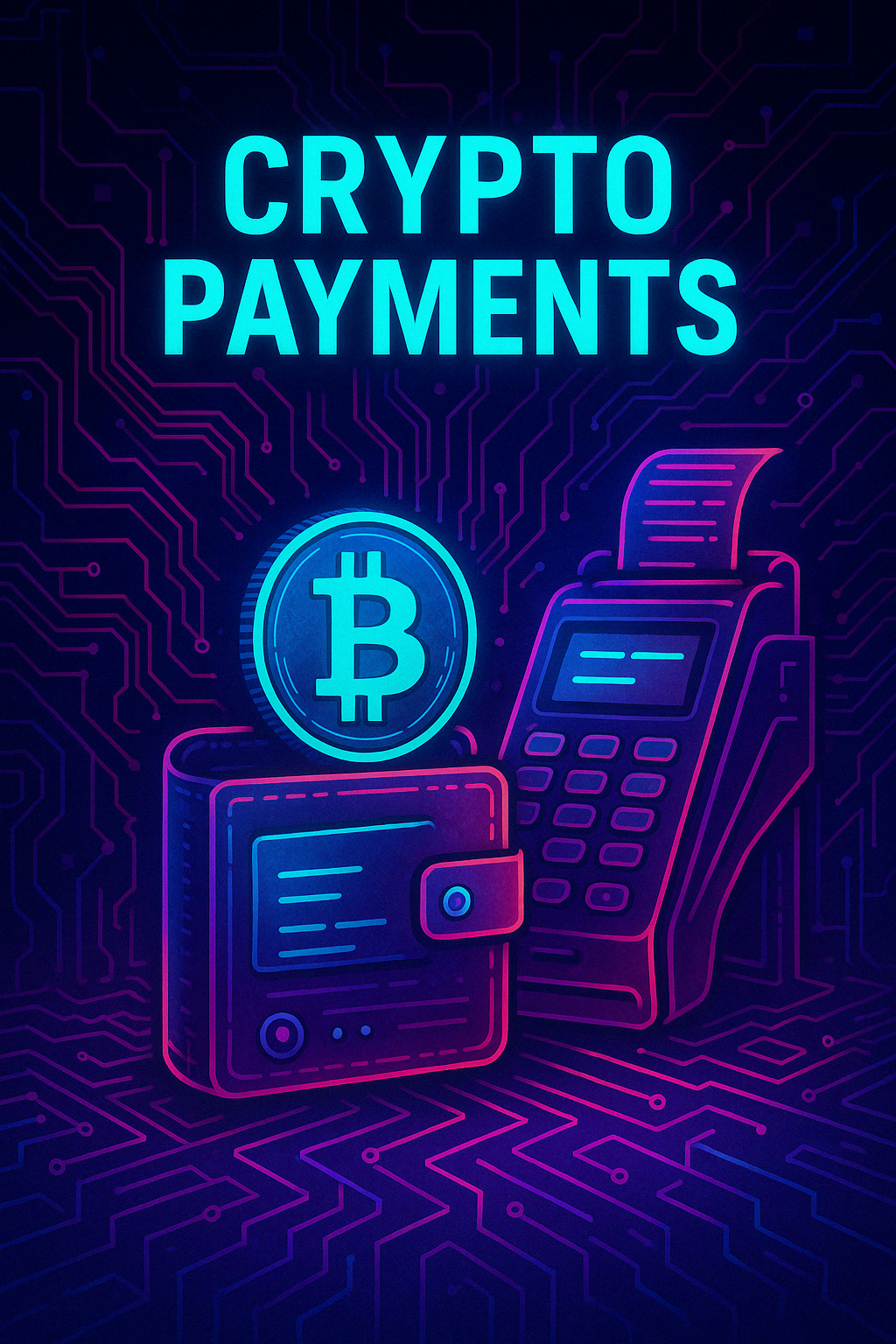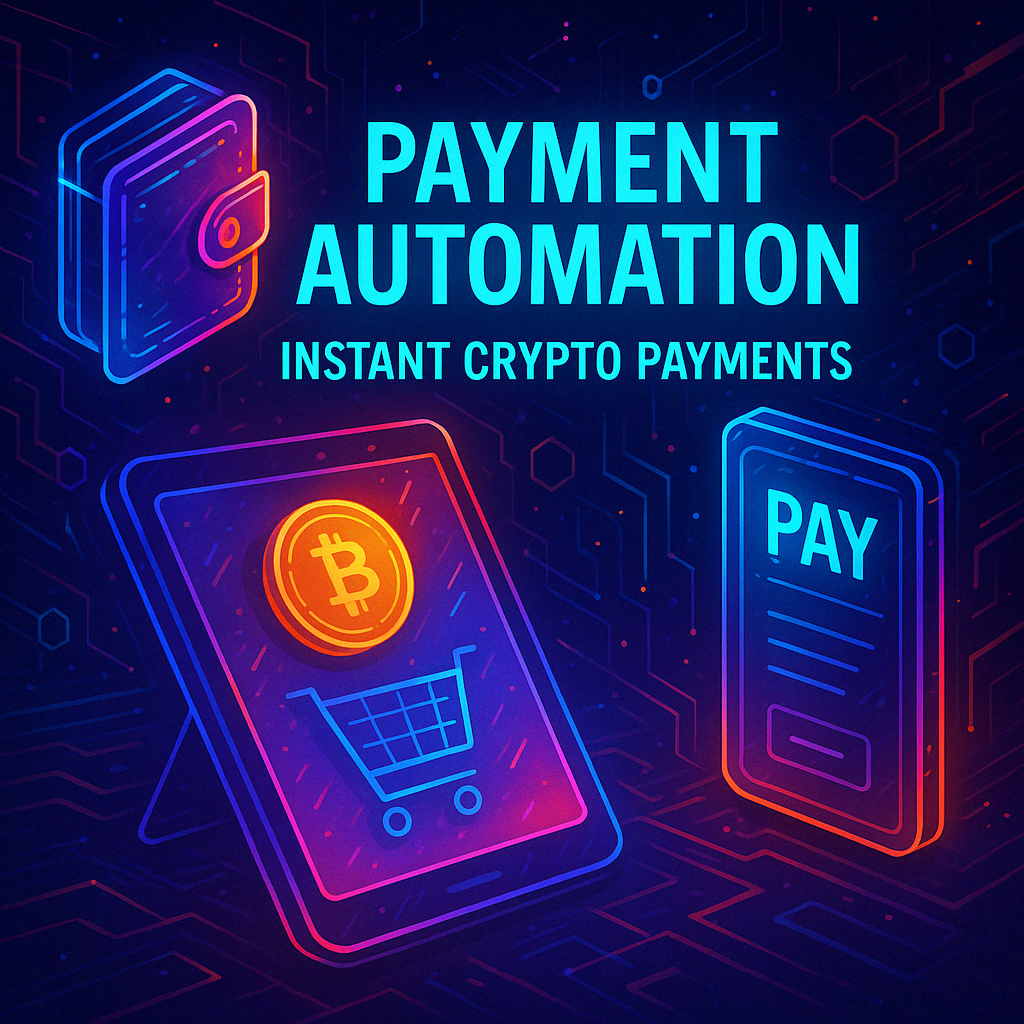Merchant Services in the Crypto Age: Secure, Tokenized, and Business-Ready
April 20, 2025 | by 16squaresmaster@gmail.com

Introduction
The digital transformation of commerce has reached a new frontier: digital currency and crypto for businesses. As blockchain adoption accelerates, businesses are exploring ways to integrate cryptocurrency into their merchant services. From peer-to-peer payments to crypto payment gateways, the landscape is shifting rapidly.
This guide will explore the evolution of crypto invoicing, payment integration, and tokenized transactions, with a focus on secure payment options, payment fraud prevention, and next-generation anti-fraud systems.
1. Understanding Merchant Services in the Digital Currency Era
What Are Merchant Services?
Traditionally, merchant services refer to the tools and processes that enable businesses to accept payments — including credit card processing, terminals, and point-of-sale systems. In the crypto era, the concept is expanding to include:
-
Crypto payment gateway integration
-
Tokenized transactions
-
Crypto invoicing tools
-
Secure payment options for digital assets
These innovations empower merchants to reach global customers, lower transaction costs, and process payments instantly.
2. Crypto for Businesses: Why It Matters
Cryptocurrency isn’t just for retail investors or tech-savvy individuals anymore. Today, businesses are adopting crypto for a variety of reasons:
-
Global reach without borders or currency conversion
-
Lower transaction fees than banks or credit cards
-
No chargebacks, reducing risk
-
Access to the unbanked population
-
Future-proofing operations as digital assets gain legal recognition
Accepting crypto is increasingly viewed as a competitive advantage.
3. Peer-to-Peer Payments: The Foundation of Decentralized Commerce
One of the fundamental innovations of blockchain is peer-to-peer payments — transactions made directly between users without intermediaries.
Benefits for Merchants:
-
No delays in settlement
-
Lower fees compared to Visa/Mastercard
-
Decentralization reduces dependence on banks
-
Transparency and auditability on-chain
Whether a freelancer or multinational business, embracing P2P digital currency payments opens up more inclusive business models.
4. Crypto Invoicing: Bridging Traditional Accounting and Blockchain
Crypto invoicing enables businesses to bill clients in cryptocurrency, track payments, and even convert funds to fiat automatically.
Features of Modern Crypto Invoicing Platforms:
-
Multi-currency support (BTC, ETH, USDC, and more)
-
Auto-generated QR codes and wallet addresses
-
Real-time exchange rate calculation
-
Fiat conversion via payment processors
-
Payment fraud prevention with blockchain verification
Popular tools: Request Finance, NOWPayments, BitPay Invoices, and BTCPay Server.
5. Payment Integration: Making Crypto Seamless
For crypto to go mainstream, it must integrate seamlessly into the payment stack.
Options for Payment Integration:
-
APIs for webshops and e-commerce platforms
-
Plugins for CMSs like Shopify, WooCommerce, and Magento
-
Point-of-sale (POS) systems with crypto compatibility
-
Custom SDKs for mobile apps and platforms
The right payment integration makes it easy for customers to pay in crypto while enabling secure payment options on the backend.
6. Tokenized Transactions: More Than Just Money
Tokenized transactions are a form of payment using blockchain tokens that represent real-world or digital assets. These go beyond currency — think ownership rights, subscriptions, or access tokens.
Business Use Cases:
-
Subscription services using token-based recurring billing
-
Event ticketing with tamper-proof NFT tokens
-
Loyalty programs powered by branded tokens
-
Crowdfunding via token issuance (ICO/IDO)
By integrating tokenized transactions, businesses can tap into powerful, programmable revenue models.
7. Choosing a Crypto Payment Gateway
A crypto payment gateway acts as the bridge between customer wallets and the merchant’s receiving system. Choosing the right provider is crucial.
What to Look For:
-
Multi-currency support and fiat conversion options
-
Low fees and high processing speed
-
Strong anti-fraud systems
-
Recurring payment capabilities
-
Compatibility with existing e-commerce platforms
-
Regulatory compliance in your region
Top Providers:
-
BitPay
-
Coinbase Commerce
-
NOWPayments
-
CoinPayments
-
BTCPay Server (open-source and self-hosted)
8. Payment Fraud Prevention in Crypto
Crypto’s pseudo-anonymity can invite fraud if not properly managed. Modern crypto payment systems implement robust anti-fraud systems to protect both merchants and customers.
Tactics Used:
-
Blockchain analytics to trace stolen funds
-
Whitelisting/blacklisting of wallet addresses
-
Geolocation and IP monitoring for suspicious behavior
-
Smart contract auditing to prevent exploits
-
KYC/AML compliance in regulated gateways
Fraud is shifting — and so are the tools to combat it.
9. Secure Payment Options in the Blockchain Era
Security is critical to building trust in crypto transactions. Blockchain inherently offers features that support secure payment options, including:
-
Public auditability through block explorers
-
Encryption and digital signatures for each transaction
-
No chargebacks, eliminating common refund scams
-
Time-locked smart contracts to release funds after service delivery
These features make blockchain one of the most secure payment technologies available today.
10. Regulatory Considerations for Crypto Businesses
Businesses accepting cryptocurrency must consider legal and tax implications.
Common Compliance Areas:
-
KYC/AML requirements for onboarding clients
-
VAT/GST obligations on crypto transactions
-
Income and capital gains taxes
-
Data privacy laws (especially for tokenized user data)
Working with a compliant crypto payment gateway ensures businesses can meet legal obligations while benefiting from innovation.
11. Case Studies: Businesses Using Crypto Merchant Services
1. Overstock.com
One of the first major retailers to accept Bitcoin through a crypto gateway. They saw increased international traffic and press attention.
2. Travala.com
A travel booking platform that lets users pay for flights and hotels with over 50 cryptocurrencies. Crypto bookings now make up a major revenue share.
3. AXA Insurance (Switzerland)
In 2021, AXA began accepting Bitcoin for premium payments, signaling a shift in how large institutions view crypto.
These examples show that both small and large businesses can benefit from crypto merchant integration.
12. Future Trends in Crypto Merchant Services
The future of merchant services will be deeply intertwined with blockchain. Key trends include:
-
AI integration with fraud detection in crypto payments
-
Cross-chain smart payments for broader token support
-
Biometric wallet access for mobile users
-
Decentralized ID verification tied to merchant wallets
-
Machine-generated crypto invoices via smart contracts
Conclusion
The age of digital assets is here, and the infrastructure for crypto for businesses is rapidly maturing. Whether you’re a freelancer, retailer, SaaS provider, or global brand, accepting crypto is no longer an experiment — it’s a strategic move.
By embracing crypto invoicing, payment integration, secure payment options, and tokenized transactions, businesses can unlock powerful tools for scalability, efficiency, and global expansion.
With the support of robust crypto payment gateways and advanced anti-fraud systems, the crypto economy is no longer a risky frontier — it’s a secure, innovative, and accessible alternative for 21st-century commerce.
RELATED POSTS
View all


